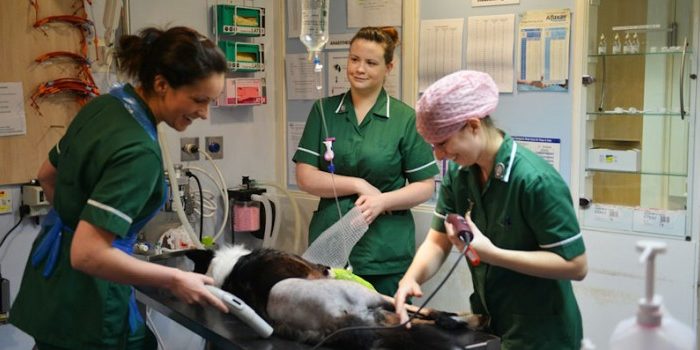Are you considering studying veterinary science at university? Likely you will be a keen scientist with an absolute passion for animals. Like medicine, becoming a vet is less of a career choice and more of a real vocation. It’s likely that you’ve known this is what you wanted to do from a young age, and you may have spent summer holidays testing your commitment by working on farms, in stables, or anywhere close to animals.
Getting a place to study veterinary science is hard – the competition is tough especially as it is a course only a handful of universities in the UK offer. You’ll need good grades at Chemistry and Biology at A-level (or equivalent), with Maths or Physics required by some universities. Most universities will also require a written test and you will have an interview where you’ll be asked about your commitment to the subject. This is where you’ll need to be able to talk about relevant work experience you’ve done in order to demonstrate your commitment and also to show that you’ve done your research properly and you know something of what the path ahead entails.
Course Content
The course is five years and the content is pretty similar from university to university. However, some universities will offer hands-on experience at an earlier stage. You will start with the anatomy – structure and form – of different animals’ bodies, looking at the musculoskeletal and cardiorespiratory systems. There will be modules on animal welfare, genetics, epidemiology, biometrics. As you get more advanced, you will study the treatment of diseases in all sorts of animals, from a family pet dog to wild herds.
Teaching is a mix of lectures, lab practicals and tutorials. You will hone your medical and surgical techniques and get plenty of hands-on practice before you graduate. Your final year is likely to be a series of rotations working with different animals such as horses, small animals and farm animals.
Careers
It’s a good thing that vet students are so focused and self-disciplined as it is likely that they will have much less free time than their peers studying humanity subjects. The plus side is that on graduation, vet students are far more likely to find the jobs that they’ve spent half a decade working towards.
Just like medicine, vets tend to specialize once they’re in the workplace. Options include a general practice – much like your GP – where you will see a variety of different animals though most have a specialty: small animals that are mostly pets, food-producing farm animals, horses and so on. Qualified vets can also choose to stay in teaching and research, or they can work in the public sector in government departments where they might monitor animal health and work on the prevention on the spread of disease.
Many working vets choose to get further qualifications along the way, ensuring that their skills remain up-to-date and relevant.
Entry Requirements
Around the AAB mark or equivalent, with at least two or three out of Biology, Chemistry, Physics, Maths. In reality, most offers will be AAA, and many courses stipulate a minimum requirement of hands-on work experience. Some universities (eg Nottingham) offer a six year course with more of an introductory foundation year, entry to this course requires fewer science A-levels.
Fees for UK and EU students are approximately £9,250 per year, rising to £33,990 for international students.
Thinking of applying to study veterinary science at university? Gabbitas can help every step of the way, contact us to find out how.


